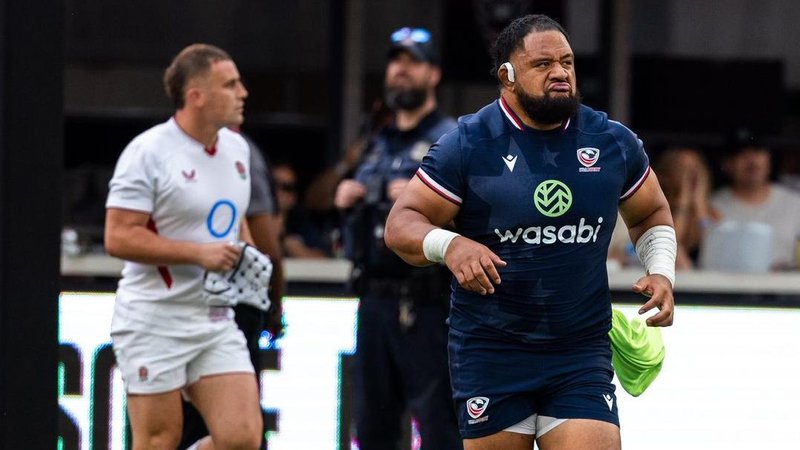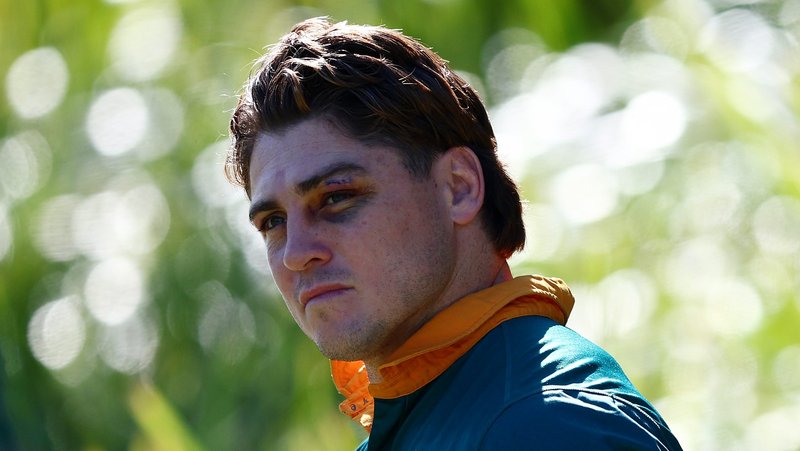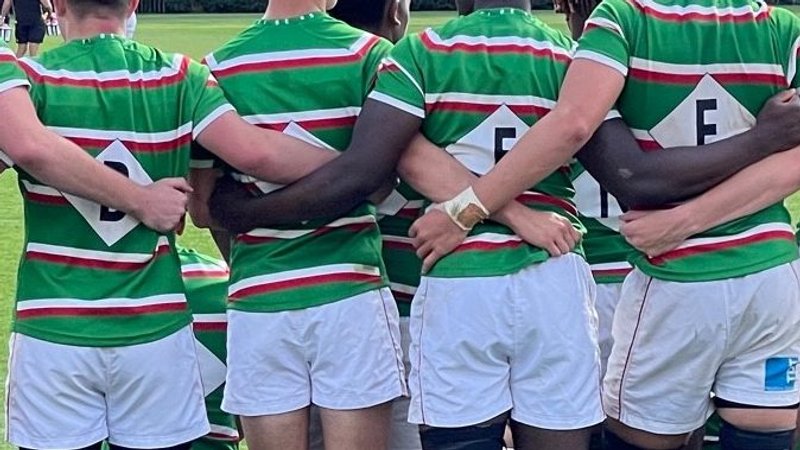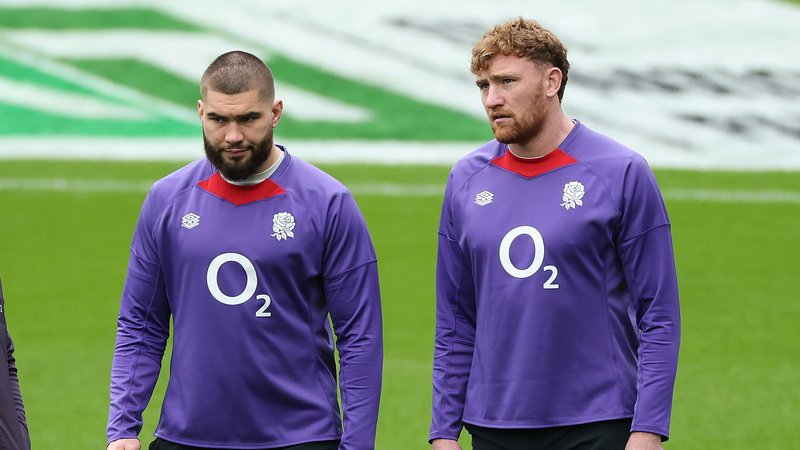The Premiership Rugby Board have unanimously supported the Myners Report and its 52 recommendations.
Commissioned by Premiership Rugby chief executive Darren Childs and conducted by former Government Minister, Lord Myners CBE, the Myners Review is the most comprehensive analysis of the Premiership Rugby Salary Cap since it was introduced 21 years ago.
The independent review was created to further strengthen the regulations to create a world-leading Salary Cap system. It followed from the 2019 case in which an independent disciplinary panel gave a strong endorsement of the regulations, finding the cap to be consistent with competition law and with the objectives of ensuring the financial viability of clubs and the league, controlling inflationary pressures, providing a level playing field, ensuring a competitive league and enabling clubs to compete in European competitions.
All 13 Premiership Rugby clubs have united to support the recommendations and agreed to move to the next stage of developing these recommendations into detailed regulation. This stage will involve further consultation with the clubs, the RFU and RPA. These new regulations will then be presented to Premiership Rugby Board for approval.
As part of the review, Lord Myners undertook an extensive public consultation so anyone interested in professional club rugby, including supporters and players, could have their say on the future of the regulations. Around 450 individuals and organisations responded to the consultation and Lord Myners held follow-up interviews with around 200 stakeholders to discuss their views in detail.
Darren Childs, chief executive of Premiership Rugby, said: “I am immensely grateful to Lord Myners for his thorough, diligent and robust approach to conducting this review.
“It's a credit to our clubs that they have acted so quickly to support these recommendations and take the Premiership Rugby salary cap into a new era. We want to create the gold standard for delivering sporting integrity, financial viability and competitive balance.
"The next stage is for us to consult with our clubs, RFU and RPA and to enshrine these new regulations for the start of the 2020-21 season, which will be created for the long-term benefit of our sport.”
The recommendations in full are:
1. Separation of Investigation, Decision to Prosecute and Enforcement
1.1 Enshrine a commitment by the clubs to respect the independence of the regulations.
1.2 The current discretion for clubs to choose to remove a director of a club pursuant to Regulation 14.7 should be removed.
1.3 Appoint an independent Cap Governance Monitor, with reserved powers in relation to the enforcement of the regulations.
2. Transparency
2.1 Announce the fact that a charge has been brought as soon as is reasonably practical and within seven days, with a brief summary of the substance and details, and proposed dates for a hearing.
2.2 Publish disciplinary decisions in full, with the redaction of confidential information or personal data.
2.3 Include details of all breaches and sanctions in a comprehensive SCM annual report, which is made public.
2.4 Publish guidance from the SCM regularly and make this publicly available.
2.5 Publish general information to share details about the operation of the cap and how it is achieving its objectives.
2.6 Publish any changes to the regulations, along with a rationale for how it is consistent with the five regulatory objectives.
3. Drafting of the Regulations and Definition of Salary
3.1 The regulations should remain as a set of detailed rules, backed up by principles.
3.2 All permitted payments to players should be automatically included within the salary cap, except for a few clearly communicated exceptions.
3.3 All exceptional items to be pre-approved by the SCM, otherwise they will be automatically treated as salary.
3.4 Prohibit payments which are subjective, extend beyond a player’s playing career or come from connected parties (including sponsorship by connected parties). Any prohibited payment should result in a sanction.
3.5 Broaden the current definition of connected party.
3.6 The SCM must approve all sponsorship arrangements in advance.
3.7 Tighten provisions around player loans to ensure they are bona fide.
3.8 Review provisions for exempt (marquee) players.
3.9 Remove the provision to deem a salary. Instead allow evidence of inaccurate salary declaration to be sufficient grounds for the SCM to launch an investigation.
3.10 Strengthen emphasis on clubs seeking clarification from the SCM in relation to any uncertainty in the interpretation of the regulations. Failure by a club to do so should be treated by the disciplinary panel as an aggravating factor leading to an increased sanction.
4. Club Accountability
4.1 The entry level for points sanctions should be increased.
4.2 The disciplinary panel should be entitled to take into account a wider range of factors and be given more guidance in relation to how those factors might influence their decision and their relative weighting.
4.3 Increase sanctions for failure to co-operate to a level equivalent to the sanctions available for breach of the salary cap.
4.4 Make additional sporting sanctions available, including relegation, suspension, stripping of titles and return of prize money.
4.5 Provide the disciplinary panel with the power to install an independent monitor for consistent and serious breaches.
4.6 Increase the sanctions available to the SCM for breach of lower level regulatory breaches, including the ability to deduct 2 points, with a right of appeal for clubs before an independent disciplinary panel.
5. Player Accountability
5.1 Tie players into the regulations so that they have accountability with respect to the salary cap.
5.2 The following player obligations should be adopted:
i) Player declaration
ii) Reporting arrangements for players
iii) Onus on player to clarify arrangements
iv) Co-operation.
5.3 Provide sanctions for players who are in breach of their obligations under the Regulations. These sanctions should include fines and sporting sanctions.
6. Accountability of Others
6.1 Introduce a fit and proper test for club owners to be available to the Disciplinary Panel in extreme circumstances.
6.2 Define a category of “club officials” to include directors and shareholders with more than a 10% holding and each club official should register with Premiership Rugby.
6.3 Require club officials to sign a declaration confirming that they have read the Regulations and agree to abide by them.
6.4 Require a board representative to sign a declaration of anticipated and actual compliance with the Regulations.
6.5 Provide that any club official who knew, or should have known, about the breach of the salary cap and who has signed a false declaration or certification or has unreasonably failed to co-operate with salary cap regulations is subject to sanctions including a ban from Premiership Rugby for up to two years (first offence) or up to lifetime (any subsequent offence).
6.6 Require clubs to nominate a salary cap officer who has duties to the SCM.
6.7 Provide obligations for agents in the regulations that mirror those of players in relation to disclosure and obligation to co-operate with the SCM.
6.8 Add a provision to the RFU’s agent declaration that includes an agreement by each agent to comply with the regulations.
6.9 Provide sanctions for breach of the regulations by an agent, including suspension of licence, forfeiture of any commission and/or fines.
7. Powers and Resource of the Salary Cap Manager and the auditors
7.1 Extend system to allow central access to each club’s salary cap spreadsheet at all times.
7.2 Require clubs to provide copies of documents such as new contracts to the SCM within 14 days.
7.3 Clarify the power of the SCM to attend clubs without notice and require them to provide him with finance reports and access to management accounts.
7.4 Allow the SCM to make requests to see players’ tax returns on a random basis.
7.5 Clarify that, as a part of their annual review, the auditors are able to obtain downloads of raw accounting data from each club’s system.
7.6 Enhance the powers available to the auditors in their annual audit to include mandatory interviews, sampling of tax returns and more extensive provision of information and documents by the clubs.
7.7 Introduce sanctions for clubs that do not comply with reasonable requests from auditors within a reasonable time frame.
7.8 The SCM should work with the Rugby Players Association and RFU to provide a programme of education for players and agents so that they understand their obligations under the regulations.
7.9 Change the title of the “SCM” to salary cap director”.
7.10 Appoint a deputy SCM to assist the SCD.
7.11 Appoint a full-time data analyst.
7.12 Make investigatory audits compulsory if the SCM has reasonable grounds to initiate.
7.13 Expand the scope of investigatory audits to include broader powers of search.
7.14 Provide sanctions for any club or individual who is found to have deleted evidence post the notification on an investigatory audit.
7.15 Introduce random mini investigatory audits for two clubs every year.






